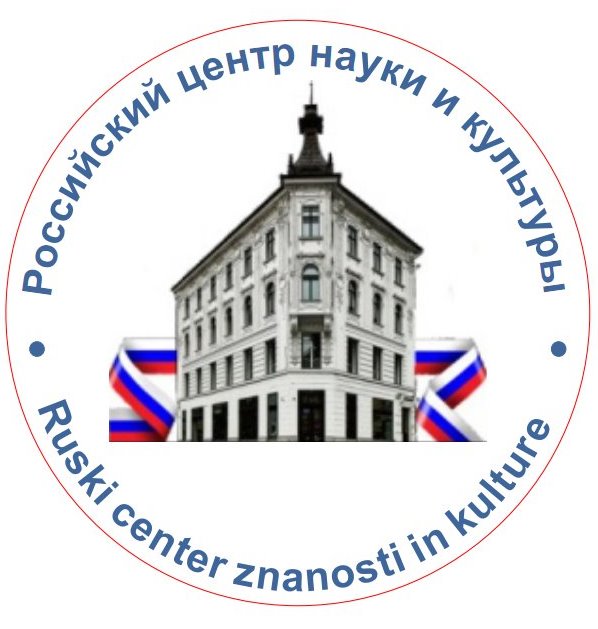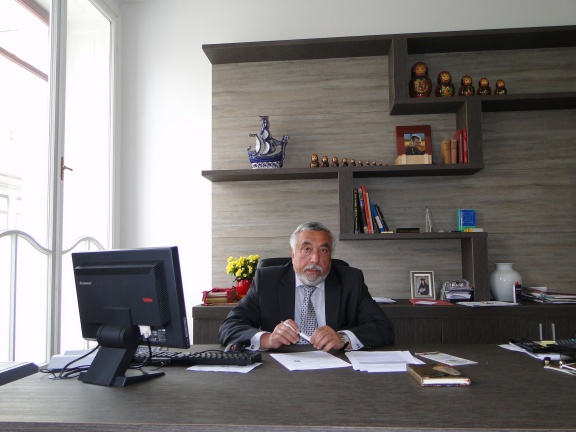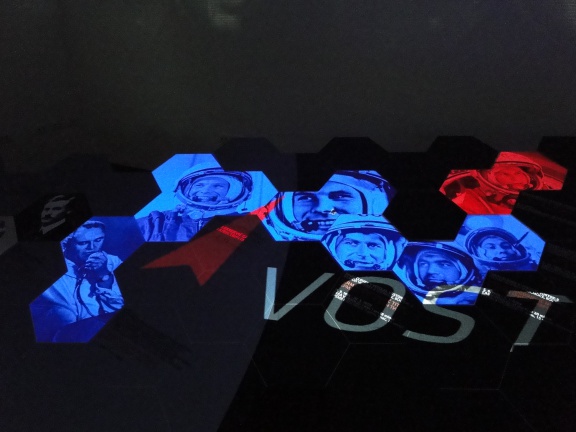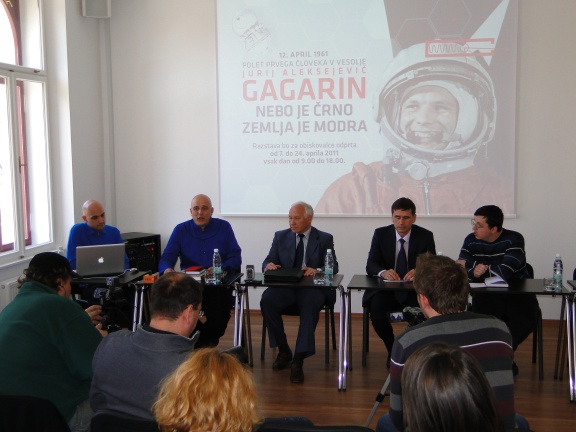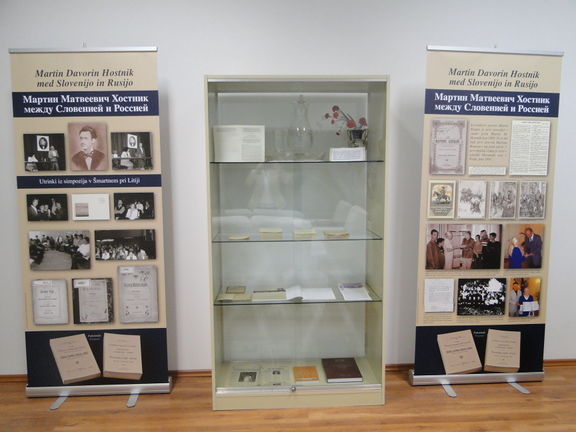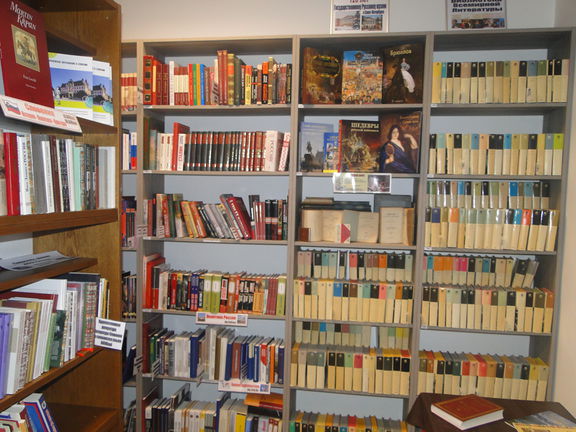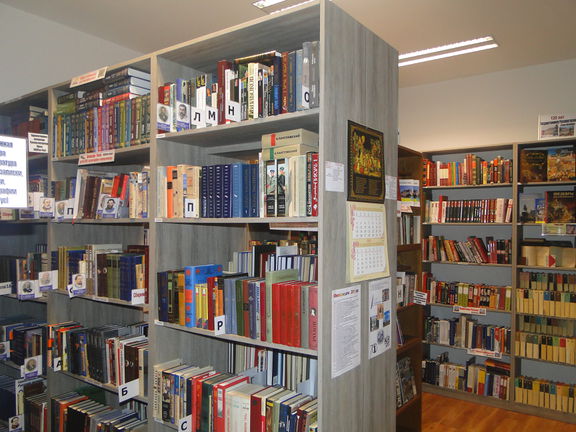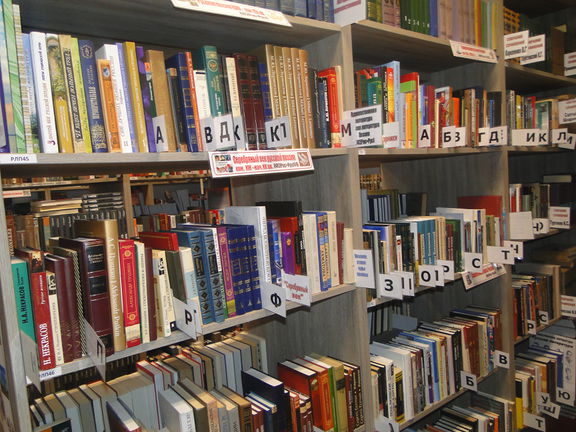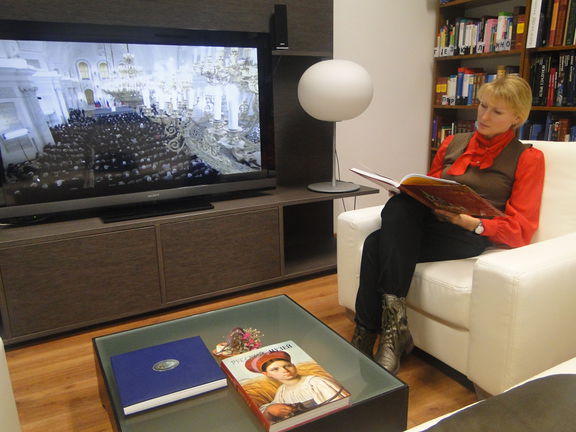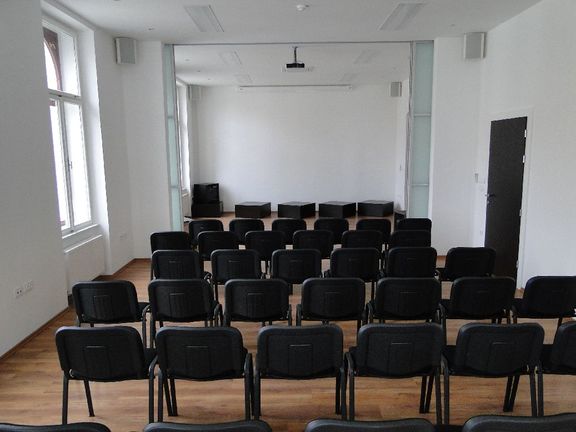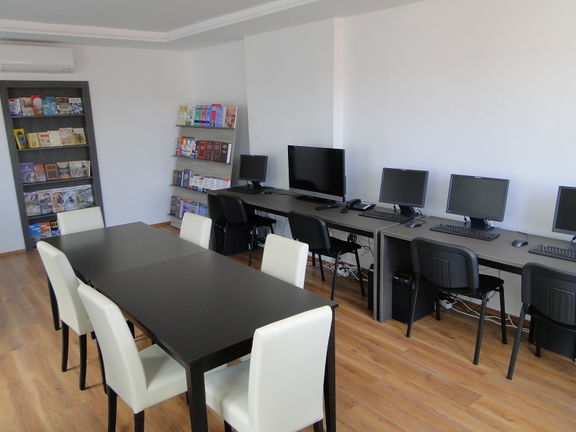Russian Center of Science and Culture, Ljubljana
Archival article
The Russian Center of Science and Culture (RCSC) was established in April 2011 in Ljubljana. So far, Russia has established 72 scientific and cultural centres in 62 countries to support international cooperation between Russia and foreign countries and encourage cooperation with the Russians living abroad. Since 2008 the network has been managed by the Rossotrudnichestvo, Federal Agency for the Commonwealth of Independent States, Compatriots Living Abroad and International Humanitarian Cooperation.
The centre organises exhibitions and film screenings, provides courses and scholarships, and also maintains a library with a reading room.
Exhibitions
The Russian Center of Science and Culture was opened with the exhibition Sky is black, Earth is blue, dedicated to the 50th anniversary of Yuri Gagarin's first flight into space, prepared by Miha Turšič and Dragan Živadinov from the Cultural Centre of European Space Technologies (KSEVT).
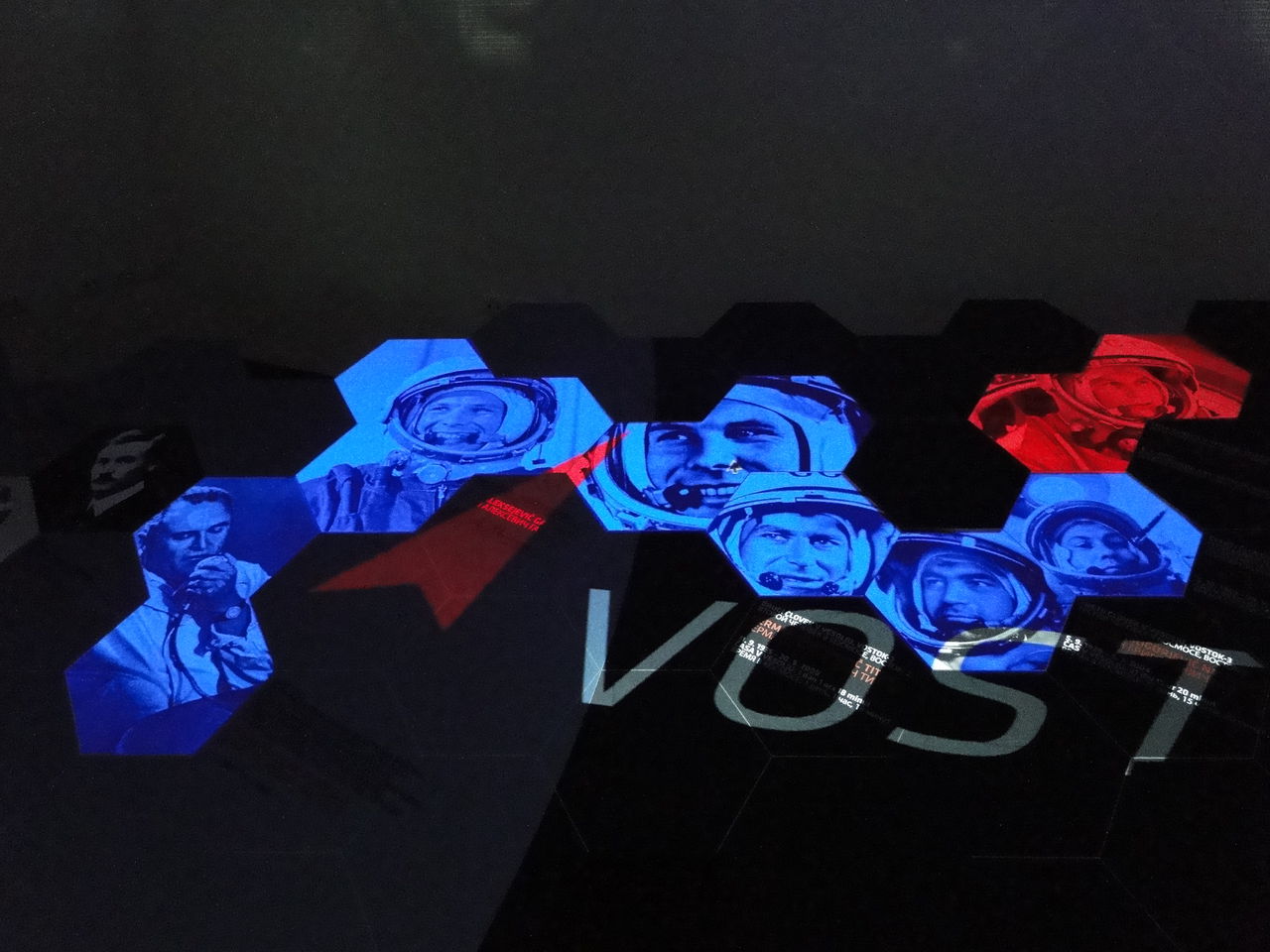
In cooperation with the Embassy of the Russian Federation in Slovenia the exhibition In the Mirrors of Time. Peoples of Russia through the Eyes of Photographers at the Turn of the 19th–20th Centuries from the collection of the St Petersburg Kunstkamera was featured in May 2011.
A small permanent exhibit presents the work and life of Davorin Martin Matvejevič Hostnik (1853–1929), Slovene translator and philologist who lived and worked as teacher in Russia since 1880 and tried to popularise Russian language among Slovenes. Next to some literary translations he published the Slovenian-Russian and Russian-Slovenian dictionaries and a short grammar book of Russian language.
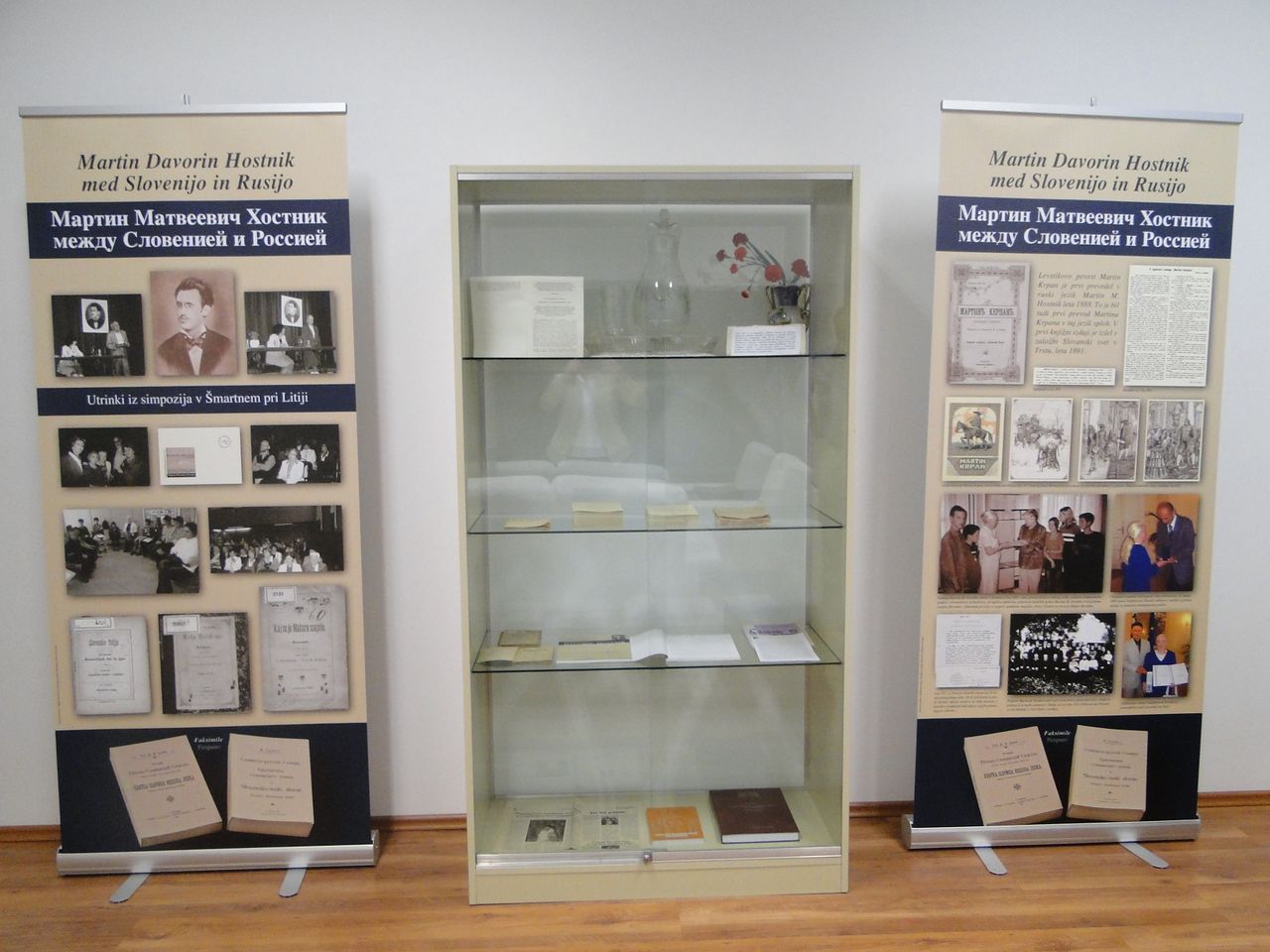
Courses and scholarships
The Russian Center of Science and Culture organises Russian language courses and lectures on Russian culture and society. Music and visual arts lessons are given by Russian artists on the premises of the centre and screenings of Russian films take place in the film club.
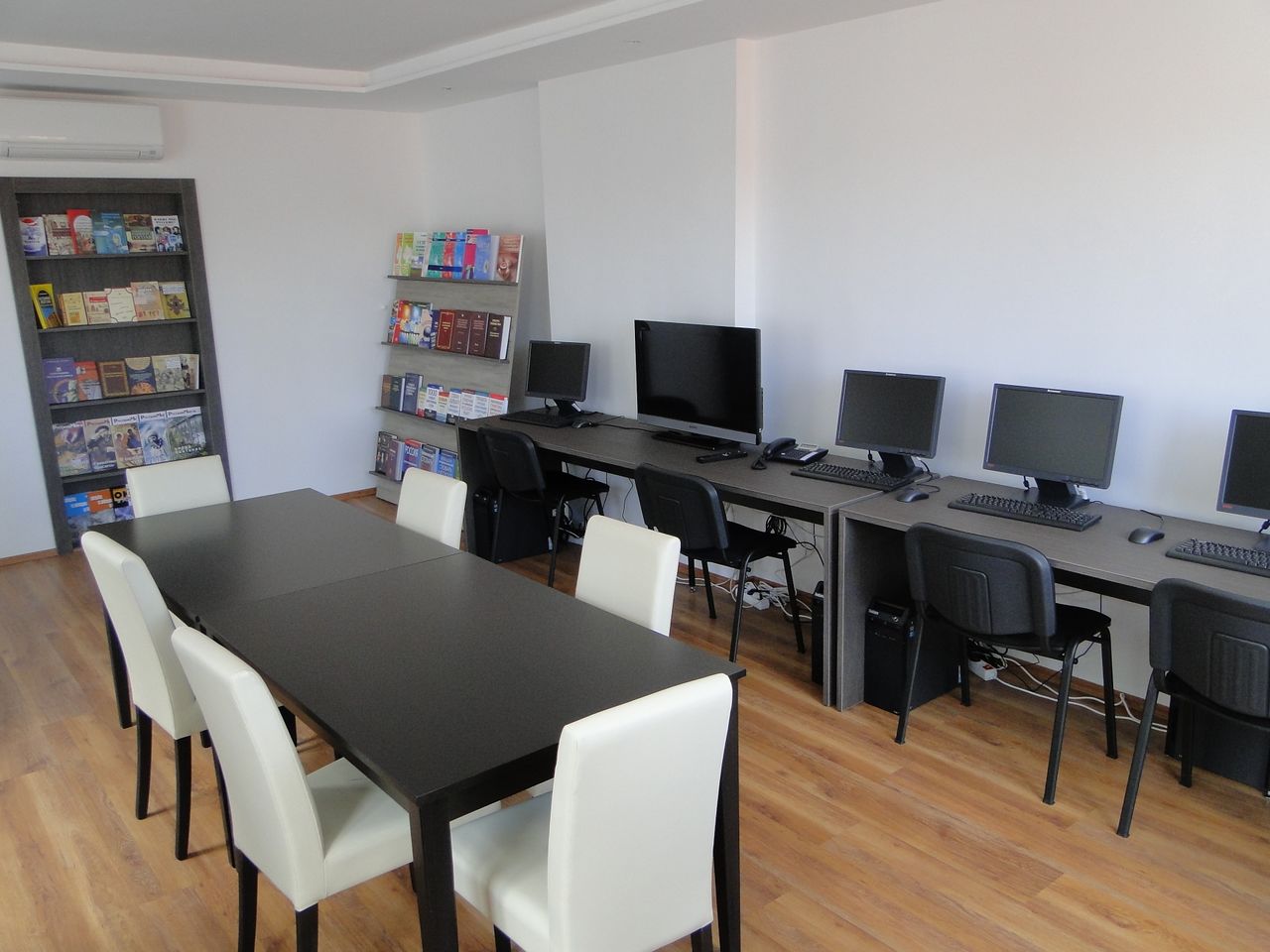
The centre provides also information about bilateral research and scientific cooperation. Occasionally, the centre publishes an open call for scholarships for study and research stay at the universities and academies in the Russian federation.
See also
- Russian Scientific and Cultural Centre Library, Ljubljana
- Ruski dom, Russian Information and Cultural Centre, Maribor
- Embassy of the Russian Federation in Slovenia
External links
- Russian Center of Science and Culture, Ljubljana website
- Russian centres abroad
- In the Mirrors of Time exhibition presented on the the St. Petersburg Kunstkamera website
- Martin Davorin Matvejevič Hostnik on Wikipedia
- The Russian Museum: the Virtual Branch Project website


